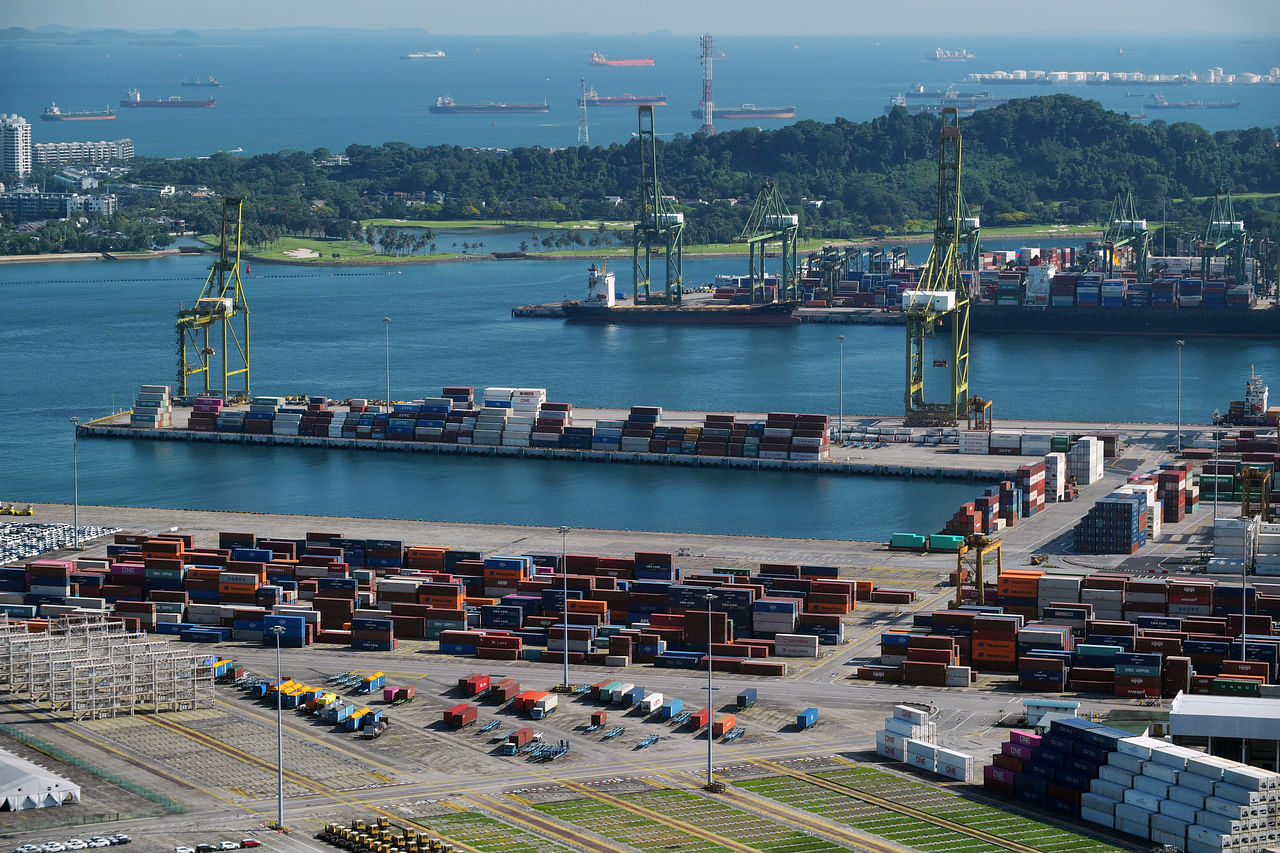S'pore to have dedicated 5G network over port waters by mid-2025
Sign up now: Get ST's newsletters delivered to your inbox

Singapore will be the first country in the world to extend dedicated 5G coverage to the sea.
PHOTO: ST FILE
SINGAPORE - Singapore is one step closer to having remote-controlled ships and self-driving vessels in its port waters, with its plans to set up a dedicated 5G network over the area.
"Our aim is to achieve full maritime 5G coverage in our anchorages, fairways, terminals, and boarding grounds by the middle of 2025," said Senior Minister of State for Transport and Finance Chee Hong Tat on Tuesday (Aug 30).
The network - which will be provided by local telco M1 - will be rolled out progressively across Singapore's port waters, added Mr Chee, who was speaking at this year's International Safety@Sea Conference at Sands Expo and Convention Centre.
A 5G dedicated network is said to be 10 times faster than 4G, and can allow more devices to be connected to it.
Its low latency - the time lag between data transmission - allows users to conduct mission-critical operations where real-time communication is needed, such as autonomous vehicle navigation.
Mr Chee said the network over Singapore's port waters will also serve as a test bed for maritime technological innovations.
"We will be able to accelerate marine tech research and development, and test new applications that can improve maritime and navigational safety," he added.
In a statement on Tuesday, the Infocomm Media Development Authority (IMDA) said Singapore will be the first country in the world to extend dedicated 5G coverage to the sea.
The 5G test bed at sea will also be the world's first and largest for maritime technology, said the agency.
As a start, initial projects for the test bed will focus on the remote guiding of ships within Singapore's waters by qualified professionals known as harbour pilots, added IMDA.
Now, ships with a gross tonnage of 300 and above entering the Port of Singapore are required to have harbour pilots physically present to help them navigate.
The pilots typically will have to take a boat from land and climb a series of vertical ladders to board the ships.
But with real-time video streaming of the vessels supported through the 5G network, the pilots will be able to guide the ships remotely from a control centre on land instead, said IMDA.
Mr Chee, who mentioned the remote guidance in his speech, said: "This not only enhances efficiency and productivity, but it also reduces the risks involved when a pilot transfers between vessels."
The minister also said the test bed can be used to trial maritime autonomous surface ships - vessels having automated systems which may be remotely controlled or are fully self-driving. Such ships are still being developed by various countries.
These ships will allow firms to create and test new systems that enable operations such as autonomous ship manoeuvres and remote control of vessels.
"We anticipate that sensors onboard (the ships) will generate a vast amount of critical data for activities such as collision avoidance and docking," said Mr Chee.
IMDA said that other potential projects include delivery drones that can quickly transport critical components to ships in need of repairs.
Mr Chee said a new system, which will automatically integrate data from 29 existing sources that monitor maritime activity here, is in the works.
The Integrated Port Operations Command, Control and Communications system will free up more time for the authorities to monitor the island's port waters, and allow them to manage maritime incidents quicker and better. It will be progressively rolled out between next year and 2026.
Another system, to monitor ships anchored in Singapore's waters in real-time, will be introduced in the third quarter of next year.
The Active Anchorage Management System will tap various data sources to help the Maritime and Port Authority of Singapore to efficiently allocate space for vessels to anchor safely, said Mr Chee.


